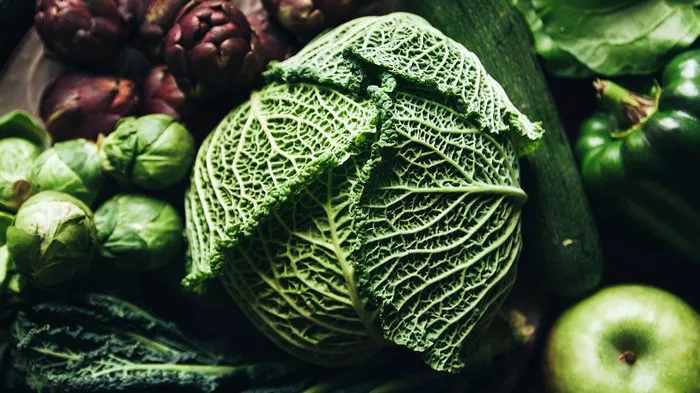Breastfeeding is a remarkable journey that not only nurtures the bond between mother and child but also provides essential nutrients crucial for the infant’s growth and development. However, what a mother eats can directly impact her baby, especially when it comes to foods that may cause discomfort or gassiness. Among these are certain vegetables known to produce gas in both mothers and infants, potentially leading to fussiness and discomfort. Understanding which vegetables to avoid while breastfeeding can help mothers make informed dietary choices to support their baby’s well-being.
Introduction to Breastfeeding and Maternal Diet
Breast milk is often referred to as “liquid gold” due to its numerous benefits for newborns, providing optimal nutrition and protection against infections. The composition of breast milk can be influenced by what the mother consumes, making her diet a crucial factor in ensuring the baby receives high-quality milk. While a varied diet is generally encouraged, there are certain foods that can cause digestive issues in infants, including gassy vegetables.
Why Do Some Vegetables Cause Gas?
Certain vegetables contain carbohydrates that are not fully digested in the small intestine, leading them to ferment in the colon. This fermentation process produces gases such as methane, hydrogen, and carbon dioxide, which can cause bloating and discomfort in both mothers and breastfed infants. The intensity of these effects can vary from person to person, but babies, in particular, may be more sensitive due to their immature digestive systems.
Understanding Infant Gas and Discomfort
Newborns and young infants commonly experience gas due to their developing gastrointestinal systems. Symptoms of gas in babies may include fussiness, crying, pulling legs up to the abdomen, and passing gas frequently. While gas is a normal part of digestion, excessive gas can cause discomfort and disrupt feeding and sleeping patterns.
The Role of Maternal Diet in Infant Gas
Mothers often wonder if what they eat can affect their breastfeeding baby’s gas levels. While not all babies react to the same foods, some infants may be more sensitive to certain components of breast milk influenced by maternal diet. Understanding which vegetables are more likely to cause gas can help mothers make adjustments to their diet as needed.
See Also: 10 Best Non Gassy Foods to Eat While Breastfeeding
Gassy Vegetables: Which Ones to Avoid
1. Broccoli: Known for its nutritional density, broccoli is also infamous for causing gas due to its high fiber content. While it offers vitamins and minerals beneficial for both mother and baby, consuming large amounts may lead to increased gas production.
2. Cauliflower: Another cruciferous vegetable, cauliflower can produce similar gas-inducing effects as broccoli. Its versatile culinary uses make it a common ingredient, but moderation may be key for breastfeeding mothers.
3. Cabbage: Whether consumed raw, cooked, or fermented (such as sauerkraut), cabbage contains sulfur compounds that can contribute to gas formation. While fermented cabbage may offer probiotic benefits, it can still cause gas in sensitive individuals.
4. Brussels Sprouts: These miniature cabbages share similar properties with their larger relatives, often causing gas due to their fiber and sulfur content. Limiting intake can help reduce potential discomfort for both mother and baby.
5. Onions: While not a vegetable per se, onions are commonly used in cooking and can impart flavor to many dishes. They contain fructans, which are a type of carbohydrate that can cause gas and bloating in susceptible individuals.
6. Peas: While peas are nutritious and a good source of protein and fiber, they contain complex carbohydrates that can ferment in the gut, potentially leading to gas in breastfeeding infants.
Strategies for Managing Vegetable Consumption While Breastfeeding
1. Introduce Vegetables Gradually: If you enjoy gassy vegetables, consider introducing them gradually into your diet. This approach allows you to monitor your baby’s reaction and adjust accordingly.
2. Monitor Baby’s Symptoms: Pay attention to any changes in your baby’s behavior or digestive patterns after consuming specific vegetables. Keeping a food journal can help identify any correlations between your diet and your baby’s gas.
3. Cook Vegetables Thoroughly: Cooking vegetables can sometimes make them easier to digest compared to consuming them raw. Experiment with different cooking methods to find what works best for you and your baby.
4. Consider Timing: Some mothers find that consuming gassy vegetables earlier in the day allows more time for digestion before breastfeeding sessions, potentially reducing the likelihood of discomfort for their babies.
5. Hydrate Well: Adequate hydration supports healthy digestion for both mother and baby. Drinking plenty of water can help alleviate constipation and promote overall digestive comfort.
Conclusion
Navigating the complexities of breastfeeding includes considering how maternal diet impacts the baby’s well-being. While gassy vegetables like broccoli, cauliflower, and cabbage can provide valuable nutrients, they may also contribute to discomfort in breastfeeding infants due to their gas-inducing properties. By understanding which vegetables to moderate or avoid and employing strategies to manage their consumption, mothers can support a positive breastfeeding experience for both themselves and their babies. Consulting with a healthcare provider or lactation consultant can provide personalized guidance on managing maternal diet while breastfeeding to ensure optimal nutrition and comfort for the baby.


